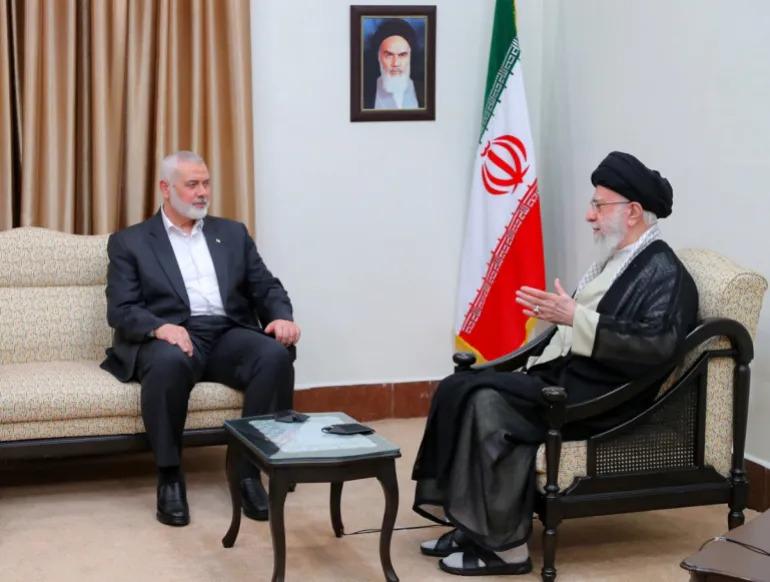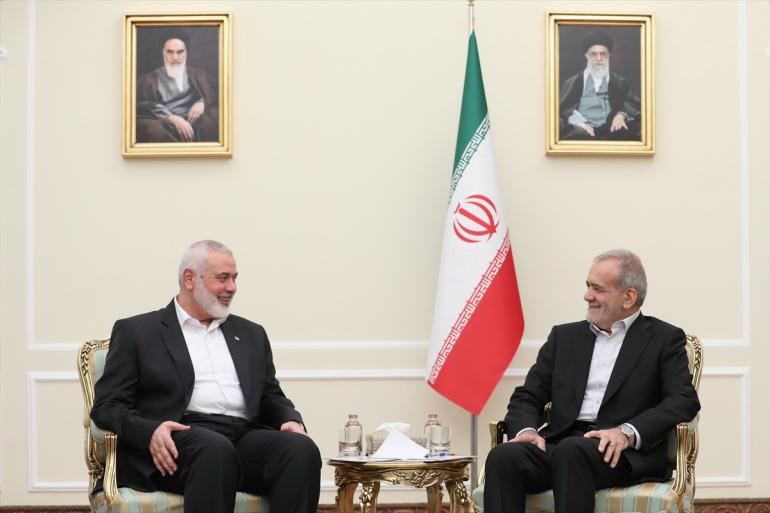Major takeaways from Haniyeh's killing for Iran’s defense & regional stability Tehran in a tight corner
On July 31, 2024, Ismail Haniyeh, a key Hamas leader, was assassinated in Tehran by what is reported to be an Israeli F-35 missile launched from Iraqi territory. This high-profile attack has escalated tensions in the Middle East and has far-reaching implications for regional stability, Iran's defense capabilities, and internal political dynamics.
Was Haniyeh targeted by Israel in Tehran?
The decision by Israel to assassinate Haniyeh in Tehran represents a significant escalation in its strategy. By targeting such a prominent figure in the heart of Iran, Israel signals a broader strategy of undermining Iranian influence and demonstrating its capability to project power beyond its borders. This action reflects Israel's intent to challenge Iran’s regional dominance and assert that no location, including the Iranian capital, is beyond its reach.
Israel's choice of Tehran as the location for the assassination is particularly provocative. It not only disrupts Hamas’s leadership but also sends a clear message about Israel's ability to strike at the core of its adversaries’ power bases. This move aims to weaken Iran's strategic position and potentially provoke a response that could further destabilize the region.
Is the US involved?
Speculation about US involvement in the assassination of Haniyeh arises from the alignment of US and Israeli interests in countering Iranian influence. While there is no direct evidence linking the US to this specific operation, the coordinated efforts of the two nations in addressing Iranian regional ambitions suggest a possible strategic alignment.
If the US were indeed complicit, this would indicate a deliberate strategy to heighten pressure on Iran. Such an alliance could lead to increased destabilization in the Middle East, as it would be part of a broader effort to weaken Iran and its regional allies. This would also likely exacerbate existing tensions between the US and Iran, complicating diplomatic relations and increasing the likelihood of further conflict.
Iran's possible reaction scenarios
The assassination of Haniyeh is poised to strain US-Iran relations significantly. This provocative act is likely part of a broader strategy to exacerbate tensions and provoke retaliatory actions from Iran. By targeting a high-profile Hamas leader within Iran, Israel, and its allies aim to provoke internal instability within Iran and fuel public discontent, further isolating the Iranian regime from the international community.

The broader implications for regional dynamics include potential escalations in the ongoing Gaza conflict. Hamas may intensify its military actions against Israel in response to the assassination, which could lead to an increase in rocket attacks or other forms of resistance. Additionally, Iran’s reaction could involve both direct and indirect retaliatory actions, impacting the stability of neighboring regions.
The assassination of Haniyeh has cast a shadow over Iran’s military and security credibility. The failure of Iranian defenses to prevent such a high-profile attack highlights significant vulnerabilities in its air defense systems. Despite claims of having state-of-the-art technology, the incident underscores the gap between Iran’s publicized defense capabilities and its actual preparedness.
Supreme Leader Ayatollah Ali Khamenei and other Iranian officials have vowed a strong response to the assassination. This could involve coordinated military strikes by Iranian allies, such as Hezbollah in Lebanon, or direct retaliatory measures by Iran itself. The potential for these actions to escalate into a broader conflict poses a significant risk to regional stability.
In the aftermath of the assassination, a conspiracy theory has gained traction within Iran. Some suggest that the attack was facilitated by internal factions dissatisfied with the current leadership. This theory posits that "reformers" within the Iranian administration might have orchestrated or enabled the assassination to undermine the conservative leadership of Ayatollah Khamenei and Saeed Jalili.
The theory suggests that the attack serves to expose the Iranian leadership’s inability to protect high-profile guests and challenge its credibility. This internal political struggle could influence Iran’s response and its strategic decisions in the coming months.
Iran’s response to the assassination would be a critical factor in shaping future regional dynamics. Analysts suggest that Tehran might opt for a symbolic or calculated response to maintain its international standing while avoiding full-scale conflict. One possible course of action could be blaming the United States for the attack and retaliating with missile strikes on empty American military facilities in Iraq. This approach would allow Iran to appear resolute without escalating tensions to a full-blown war.
Alternatively, Iran could choose indirect retaliation, such as supporting attacks on Israeli facilities in Europe or other regions. This would likely be carefully managed to avoid civilian casualties and further international condemnation.

Conclusion
The assassination of Ismail Haniyeh in Tehran marks a significant escalation in the Middle Eastern conflict with profound implications for regional stability and international relations. The event has exposed vulnerabilities in Iran’s defense capabilities and intensified internal political tensions.
As Iran and Israel navigate the aftermath, the international community will be closely monitoring developments that could reshape the strategic landscape in the Middle East. The responses to this high-profile assassination will be crucial in determining the future course of conflict and diplomacy in the region.








